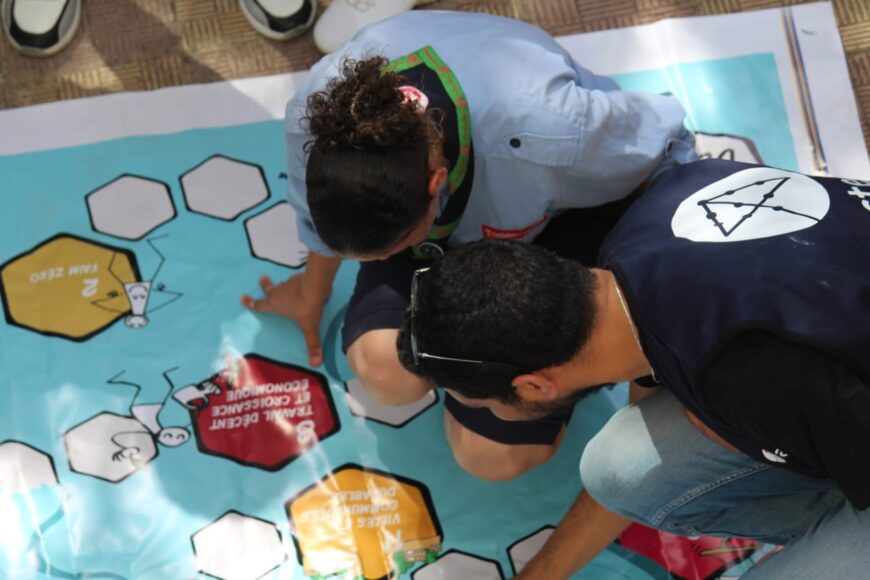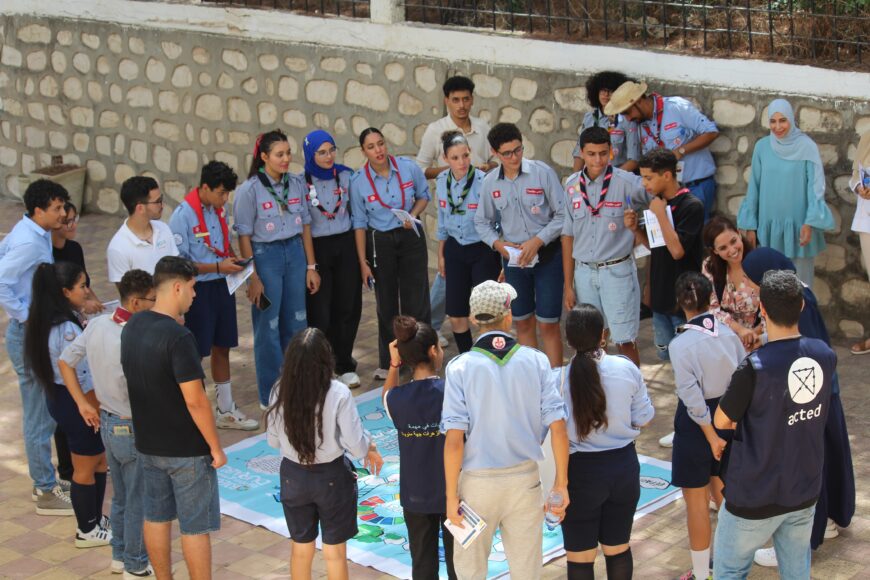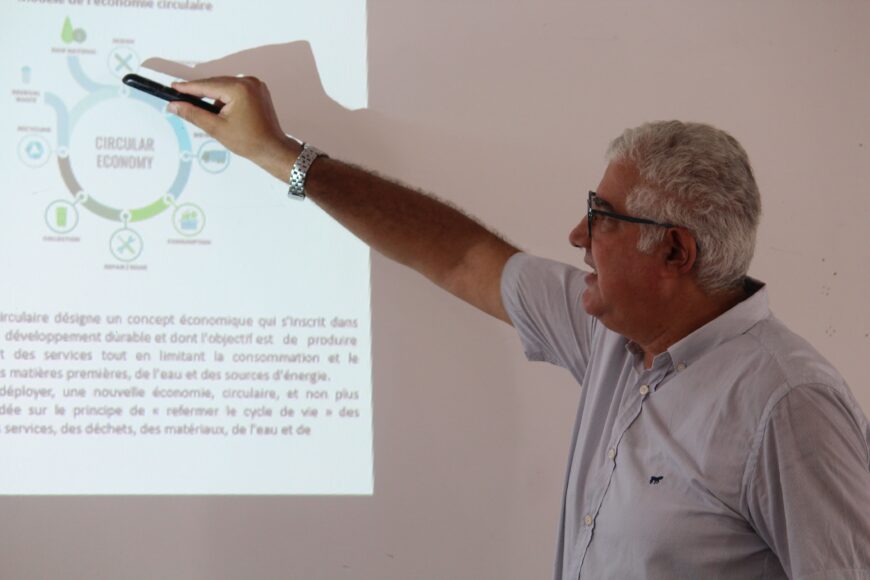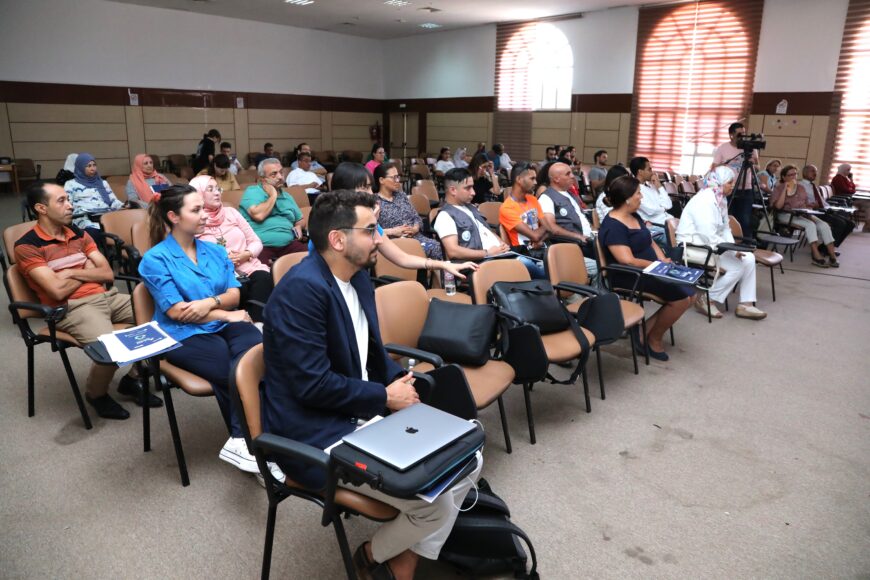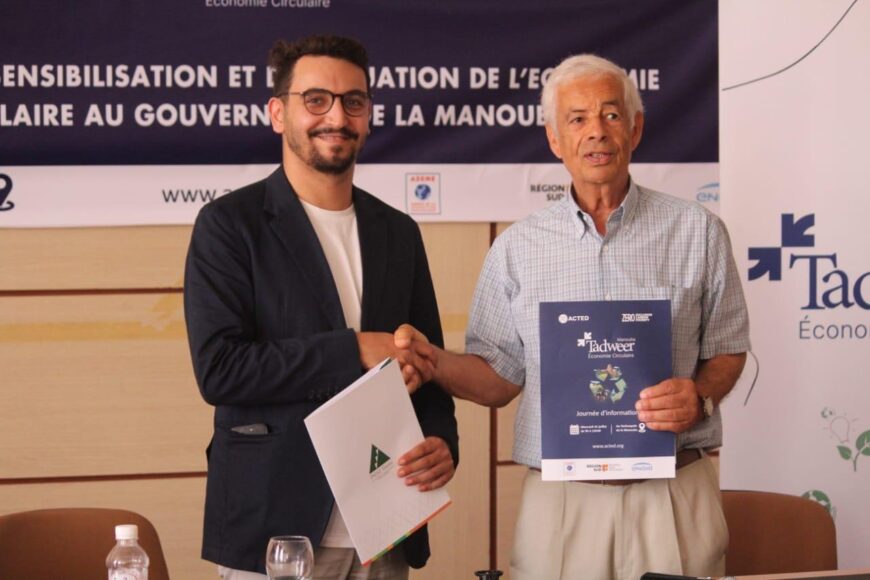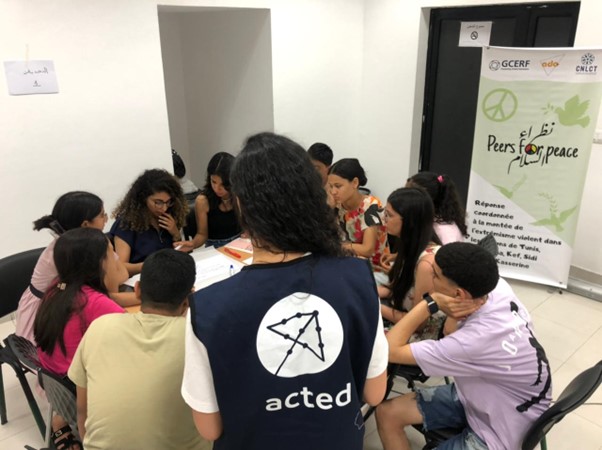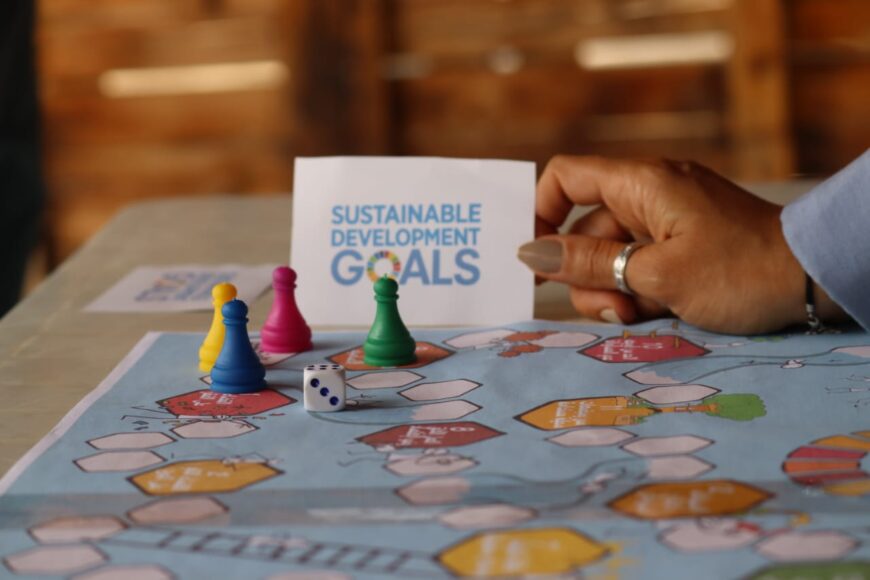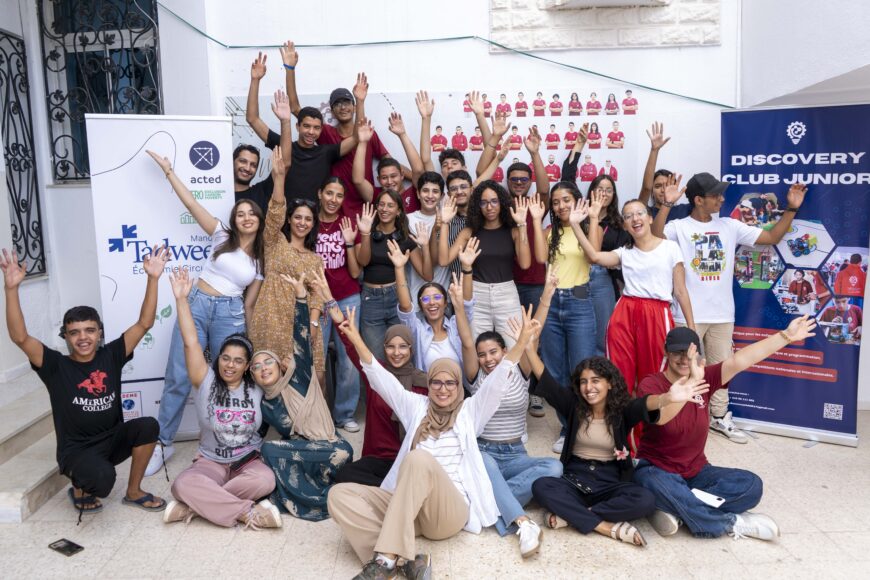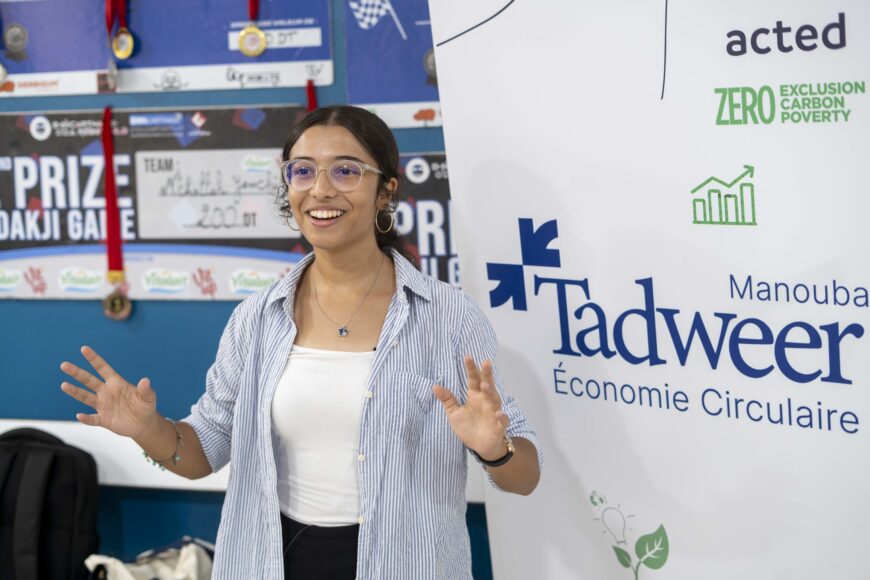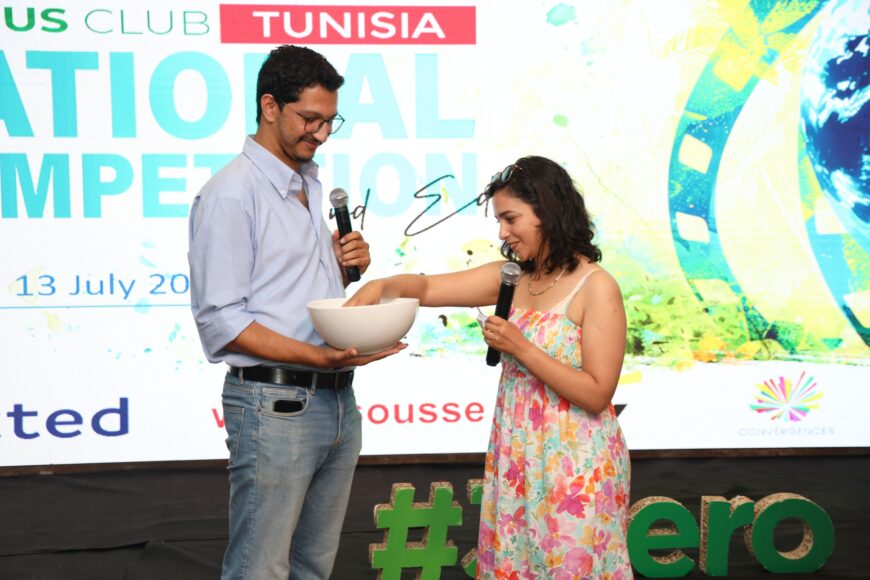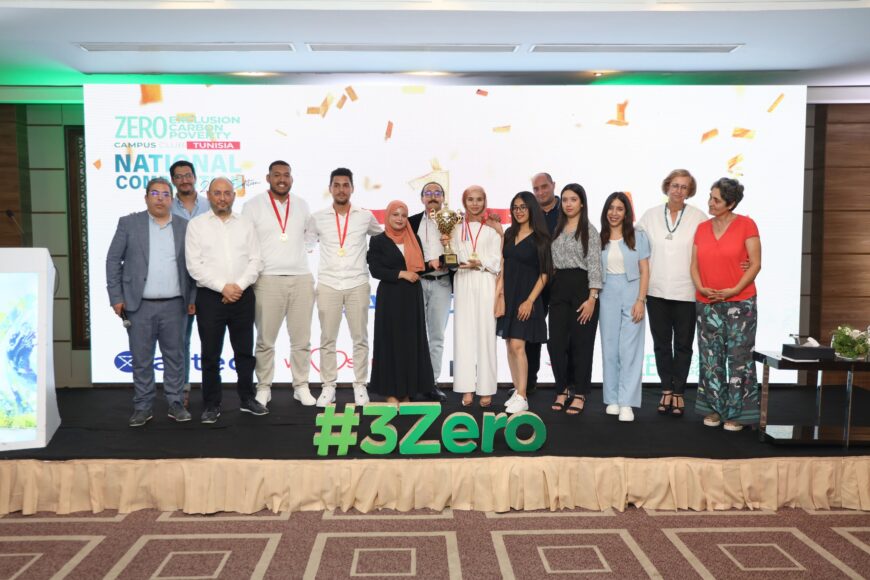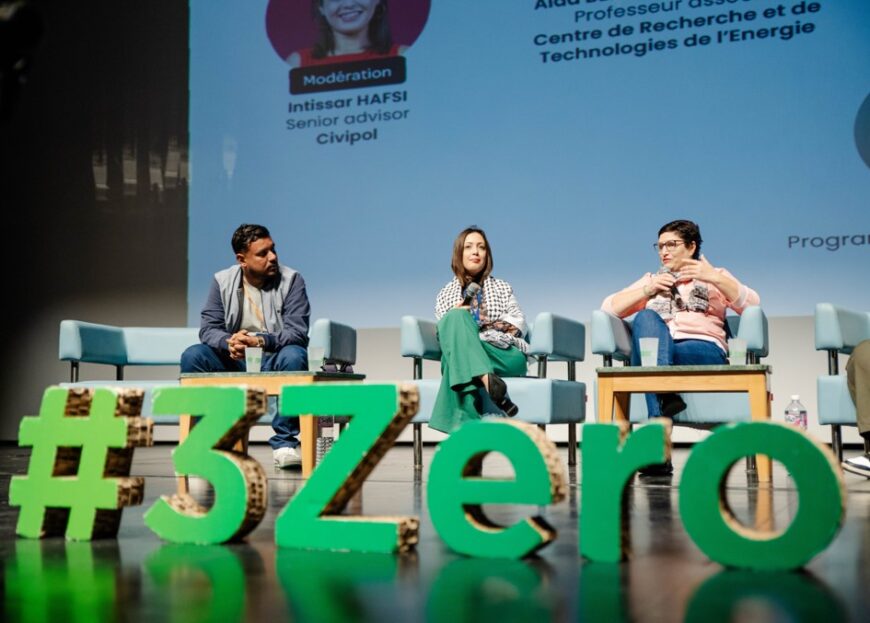Acted has been active in Tunisia since 2019 with a coordination office in Tunis and interventions across 5 governorates (Manouba, Jendouba, Kef, Kasserine, Sidi Bouzid). Aligned with the global 3ZERO strategy—Zero Exclusion, Zero Poverty, Zero Carbon, Acted's work in Tunisia spans Circular Economy, Inclusive Economic Opportunities, Citizen-driven Climate Action, and Peace Stability & Justice, in partnership with INGOs, local NGOs, private entities, and universities. Acted aims to develop a 3-zero network by connecting people and ecosystems, fostering a collaborative environment that supports innovative solutions to societal, economic and environmental challenges.
Since 2011, Tunisia has faced a severe economic and democratic crisis, with inflation surpassing 10% and youth unemployment reaching 35-40%1. Paradoxically, higher education levels decrease employability, particularly for women, with graduate unemployment at 24.6%2. Limited job opportunities, inadequate skills, and lack of market information are driving many young Tunisians to emigrate, threatening the country’s economic competitiveness. Tunisia is also highly vulnerable to climate change, facing rising temperatures, reduced rainfall, sea level rise, and increased extreme weather events such as floods and droughts, leading to significant environmental and socio-economic risks3. Faced with the convergence of climate change and socio-economic challenges in Tunisia, Acted aims to support multi-party interventions supporting innovative local solutions.
Acted in Tunisia
Since 2021, Acted aims at establishing a sustainable 3ZERO network across Tunisia, with a focus on youth, green and circular economies, and entrepreneurial initiatives that drive both environmental and social impact. This network involves collaborations with international and local NGOs, governance bodies, private sector actors, and universities. By fostering alliances among diverse stakeholders, Acted aims to diversify the economy and create new opportunities, all while promoting cross-generational and cross-sectoral cooperation.
Acted is supporting Social and Solidarity Economy initiatives which present promising alternatives for the younger generation by addressing the shortcomings of traditional economic systems and fostering climate impact-driven entrepreneurship. Acted, in partnership with We Love Sousse, created 25 3Zero Campus Clubs across 25 faculties in ten cities and supported the organisation of 5 Convergences Forums focused on social and solidarity economy (SSE) initiatives. Since January 2024, Acted has been executing a circular economy project in La Manouba, involving directly 250 individuals with awareness-raising sessions and supporting entrepreneurs through a financial support and an incubation program. By supporting innovative local solutions to socio-economic and climate challenges in Tunisia, Acted aims at ensuring a transformative impact on both people and the environment.
3ZERO in Tunisia
In Tunisia, Acted is promoting collaborative initiatives with a strong impact on the 3ZEROs through local partnerships and flagship programs:
- 3ZERO Convergences Forum: a key platform Acted helped establish in 2008, held its 5th edition in Tunisia in November 2023. This event underscored the necessity of aligning economic systems with social and environmental goals, engaging participants in workshops that utilized social and solidarity economy (SSE) tools to ignite local change.
- 3ZERO Campus Club: created in 2022, the 3ZERO campus clubs are designed to inspire and empower youth and future policymakers, with 25 active clubs engaging 642 students across major Tunisian universities.
- 3ZERO House: Acted is aiming to develop a digital 3ZERO House in Tunisia to foster collaboration among current and emerging social and cultural entrepreneurs, enhancing their skills and leveraging global networks.
